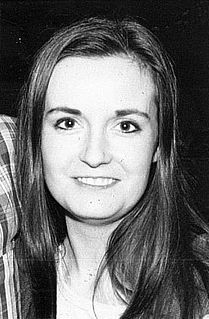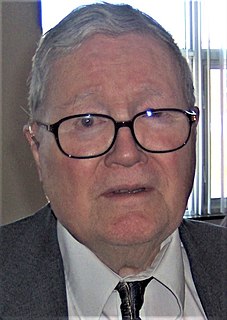A Quote by Thomas Sowell
More frightening to me than any policy or politician is the ease with which the public is played for fools with words. The latest example is the 'Employee Freedom of Choice Act,' a bill that will do away with secret ballot elections among workers voting on whether to be represented by a union. It is an open invitation to intimidation - which is to say, loss of freedom of choice.
Related Quotes
The economic freedom which is the prerequisite of any other freedom cannot be the freedom from economic care which the socialist promise us, and which can be obtained only by relieving the individual at the same time of the necessity and of the power of choice: it must be the freedom of economic activity which, with the right of choice, inevitably also carries the risk and the responsibility of that right
We human beings do have some genuine freedom of choice and therefore some effective control over our own destinies. I am not a determinist. But I also believe that the decisive choice is seldom the latest choice in the series. More often than not, it will turn out to be some choice made relatively far back in the past.
There is always a choice." "You mean I could choose certain death?" "A choice nevertheless, or perhaps an alternative. You see I believe in freedom. Not many people do, although they will of course protest otherwise. And no practical definition of freedom would be complete without the freedom to take the consequences. Indeed, it is the freedom upon which all the others are based.
There can be no truly moral choice unless that choice is made in freedom; similarly, there can be no really firmly grounded and consistent defense of freedom unless that defense is rooted in moral principle. In concentrating on the ends of choice, the conservative, by neglecting the conditions of choice, loses that very morality of conduct with which he is so concerned. And the libertarian, by concentrating only on the means, or conditions, of choice and ignoring the ends, throws away an essential moral defense of his own position.
A much more radical conclusion . . . that, so far as I know, is shared by only a very few students of public choice [is]: that government employees or people who draw the bulk of their income from government by other means should be deprived of the vote . . . It is another example of the opening up of alternatives for investigation and the presentation of new conceivable policy options characteristic of public choice, rather than a policy that all its students favor.
In Hollywood, the ... basic freedom of being able to choose between alternatives is absent. The gifted people who have the capacity for choice cannot exercise it; the executives who technically have the freedom of choice do not actually have it, because they usually lack the knowledge and imagination necessary for making such a choice.
In that inevitable, excruciatingly human moment, we are offered a powerful choice. This choice is perhaps one of the most vitally important choices we will ever make, and it determines the course of our lives from that moment forward. The choice is this: Will we interpret this loss as so unjust, unfair, and devastating that we feel punished, angry, forever and fatally wounded-- or, as our heart, torn apart, bleeds its anguish of sheer, wordless grief, will we somehow feel this loss as an opportunity to become more tender, more open, more passionately alive, more grateful for what remains?
In ability choice education finance majorities people understanding voting A lot of voters always cast their ballot for the candidate who seems to them to be one of the people. That means he must have the same superstitions, the same unbalanced prejudices, and the same lack of understanding of public finances that are characteristic of the majority. A better choice would be a candidate who has a closer understanding and a better education than the majority. Too much voting is based on affability rather than on ability.



































